Irish general election: Who is Mary Lou McDonald?
- Published
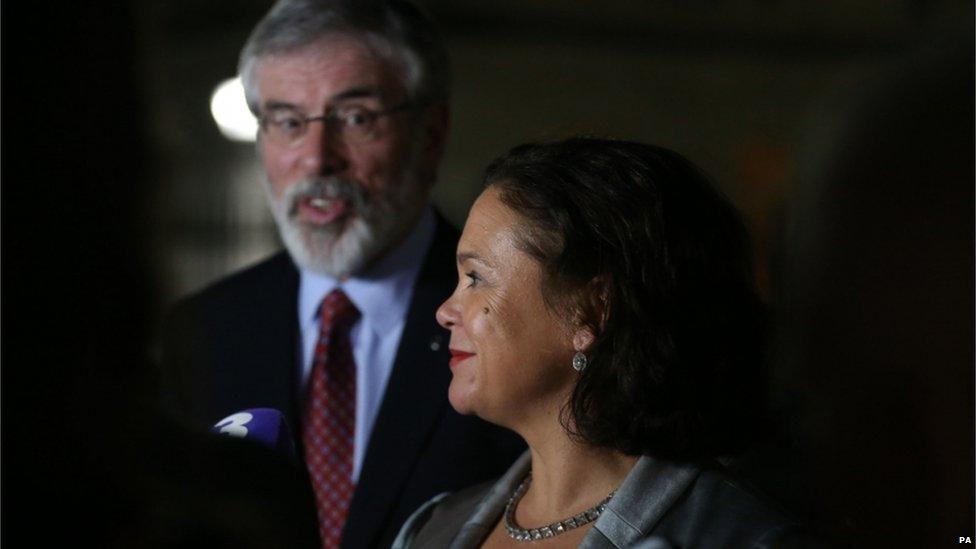
Mary Lou McDonald was the only candidate to replace Gerry Adams after his three decades of leadership
It is two years exactly since Mary Lou McDonald was anointed as Sinn Féin president, taking over from Gerry Adams after 34 years.
Since then, the Dublin politician has sought to distance her party from criticism about its historic links to IRA violence.
The surge in support for Sinn Féin over the course of the general election campaign may suggest her leadership has helped the party chart a new course.
Mary Lou McDonald's upbringing is very different from other leading Sinn Féin politicians.
The 50-year-old comes from a middle-class background and was brought up in Rathgar, viewed as one of Dublin's most desirable suburbs.
She went to a private fee-paying school and became interested in politics in her teens, but it was not Sinn Féin that initially caught her eye.
In the late 1990s, she joined Fianna Fáil in Dublin West and her political opponents say she was keen to climb the political ladder.
However, Mrs McDonald has said her switch to Sinn Féin was more about policy than personal ambition, arguing that she is a supporter of Irish unity to her core.
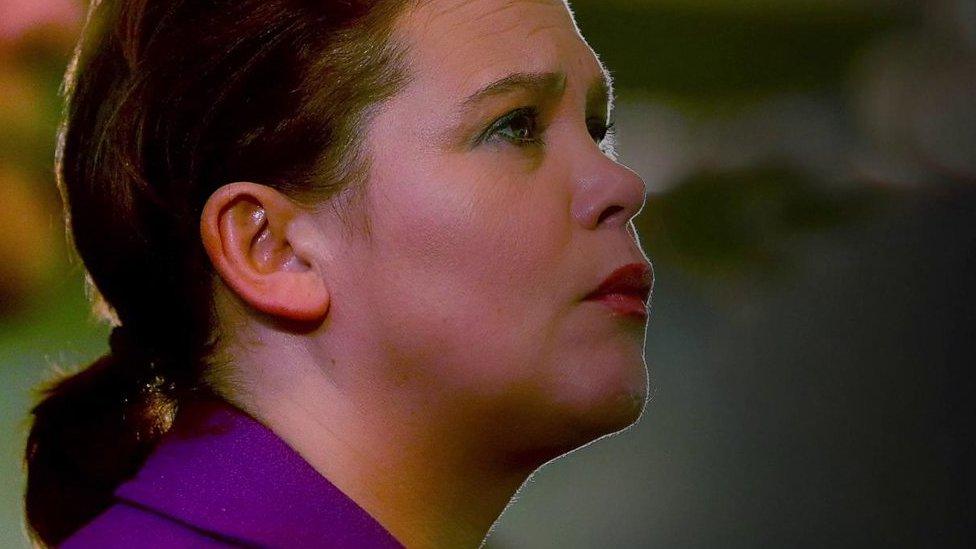
Mrs McDonald has been an elected representative for Sinn Féin since 2004
In 2002, Mrs McDonald was Sinn Féin's candidate in Dublin West, but failed to win a seat in the Dáil (Irish parliament).
However, in 2004 she made history by becoming the party's first MEP and in 2009 became the vice-president of Sinn Féin.
Her role in Europe gave her a profile, and in 2011 she was elected as a member of the Dáil for Dublin Central.
Mrs McDonald's style in the Dáil drew attention, as she became known for clashing with the larger parties. For their part, they have always said they will not work in government with Sinn Féin as coalition partners.
Last year, Sinn Féin suffered setbacks across local government and European elections in Northern Ireland and the Republic of Ireland - leading to questions about Mrs McDonald's leadership.
However, all those concerns seem to have disappeared in this election campaign, as the long-standing politician has seemed at home while out canvassing and opinion polls reported a dramatic rise in the party's chances, external this time around - and the polls proved to be right.
Social issues stance
As Sinn Féin's numbers have improved, Fine Gael and Fianna Fáil have repeated their opposition to the party being in government, arguing its past and its policies would be damaging.
However, Mrs McDonald's stance on social issues has drawn some new voters towards Sinn Féin.
She was a vocal supporter of the campaign to overturn the ban on abortion in the Republic of Ireland, and later that year the party changed its policy to back abortions within the first 12 weeks of pregnancy.
There have, however, been moments since she took over as party president that have caused difficulties for Mrs McDonald.
In July 2018, she was accused of rowing back on party policy when she said a border poll should not be held while uncertainty around Brexit remained.
That was in stark contrast with Sinn Féin's previous assertions that a referendum on a united Ireland cannot come soon enough.
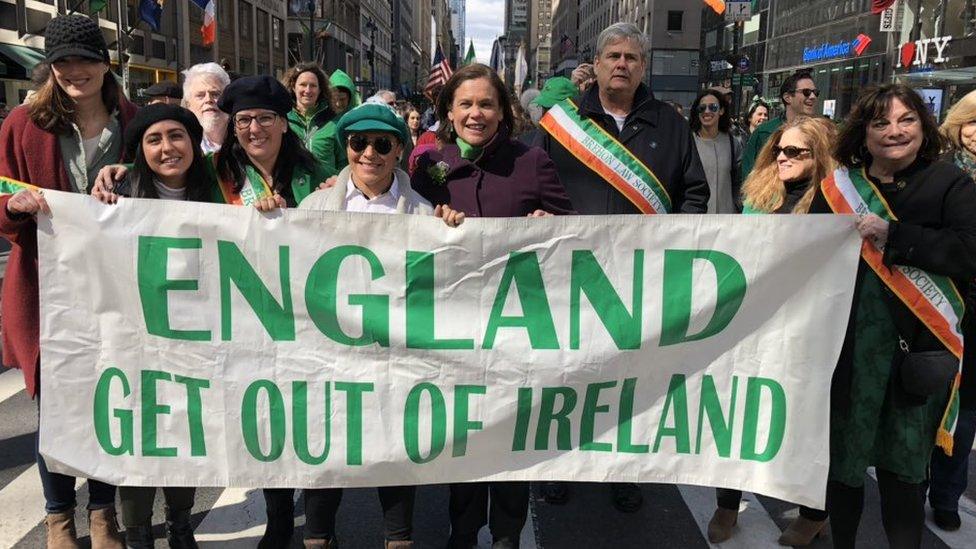
Mary Lou McDonald taking part in the 2019 New York's St Patrick's Day parade with the banner
Praise she received for using the word "Londonderry" in a video on social media after a trip to the city, was overshadowed when she was criticised the following year for posing with a banner reading "England get out of Ireland" during a St Patrick's Day parade in New York.
Despite a strong election campaign so far, there has been criticism of how her party has handled the controversy surrounding the murder of a County Armagh man in 2007.
During RTÉ's Prime Time leaders' debate, Mrs McDonald was asked about comments made by the party's Conor Murphy shortly after the killing, that Paul Quinn had been involved in "criminality and smuggling".
Mr Quinn's family had called for Mr Murphy to retract the remarks and apologise publicly, something Mrs McDonald said he would do - but she said she would not ask him to step down from his current role as the Stormont finance minister.
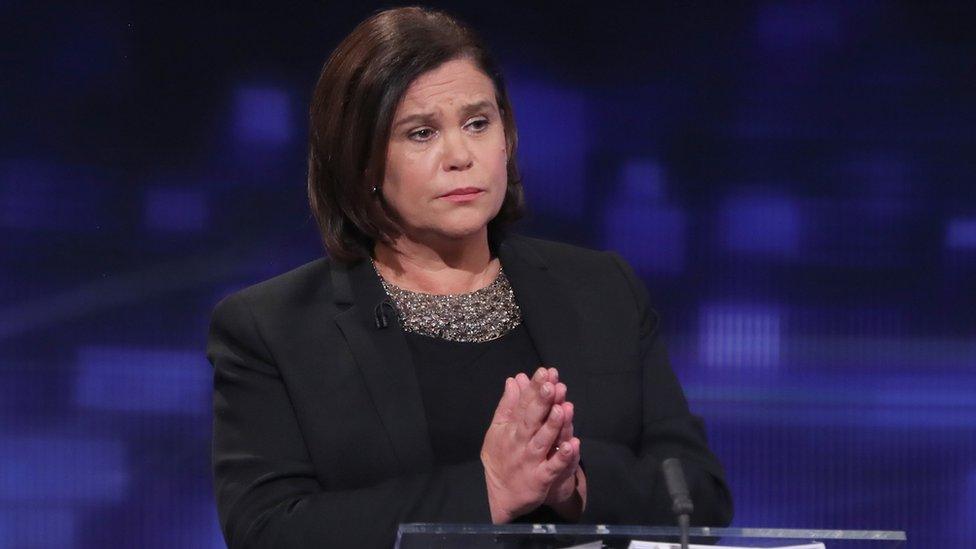
Mary Lou McDonald said Mr Murphy would apologise for the remarks - but Mr Quinn's family has said the apology does not go far enough
However, it is unlikely that the party's handling of this matter damaged its chances in Saturday's general election.
This outcome of the vote will not see Mrs McDonald becoming the next taoiseach (Irish PM) - the party only ran 42 candidates across the 39 constituencies with 160 seats up for grabs.
There is a possibility, if things do not go as the bigger parties hope, that the Sinn Féin president could however be in with a chance of becoming tánaiste (deputy prime minister).
Going into government in the Republic of Ireland would represent a huge step for the party - but also a new test for Mary Lou McDonald's leadership.
- Published3 February 2020
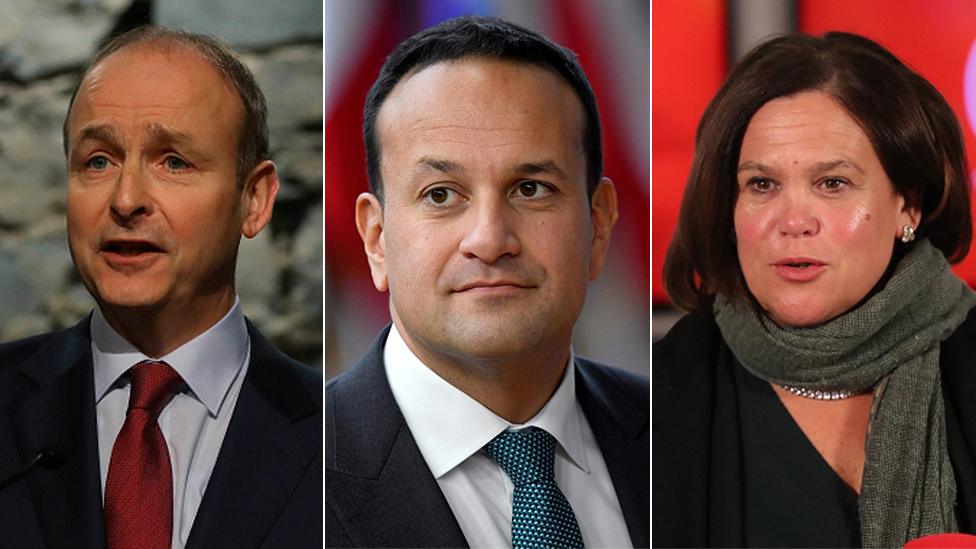
- Published13 February 2020
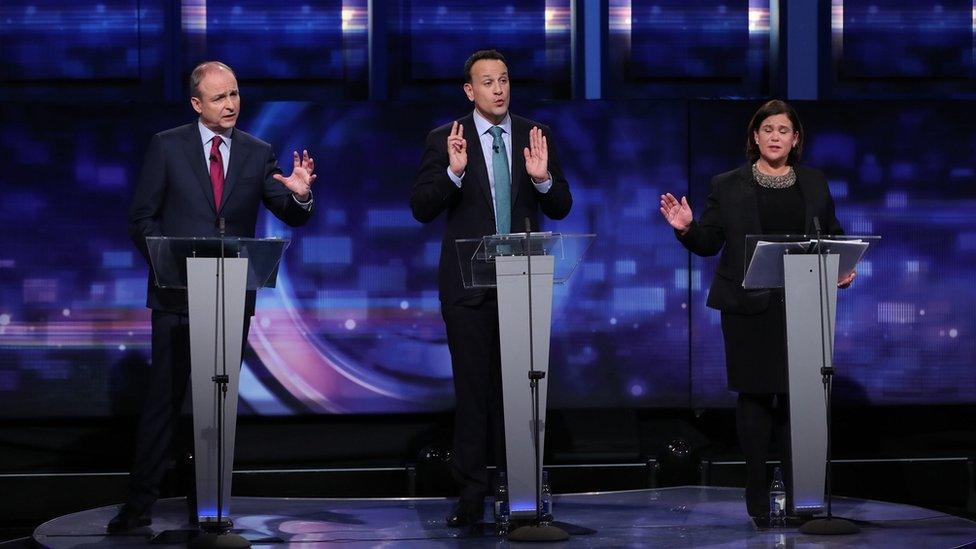
- Published6 February 2020
